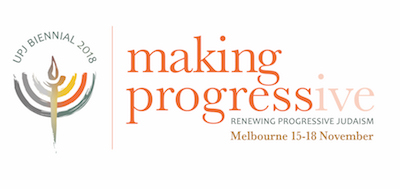
June 2018 Sivan~Tamuz 5778
Photo by Eddie Pausma
A strong, vibrant community with a spiritual heart embracing Jewish life and its diversity.
(ISSN 1177-2352 ) eBook version

Photo by Eddie Pausma
A strong, vibrant community with a spiritual heart embracing Jewish life and its diversity.
(ISSN 1177-2352 ) eBook version
Opinions expressed in Teruah do not necessarily represent the views of Beth Shalom Board of Management.
Affiliated with the Union for Progressive Judaism (UPJ)
Charities Commission Registration Number CC29542
PO Box 26 052, Epsom, Auckland 1344, New Zealand
Tel: 09 524 4139 Fax: 0282 552 3027
Office: Christine O’Brien [email protected]
Website: www.bethshalom.org.nz
Executive
Board members and portfolios
“Everybody can be great. Because anybody can serve. You don't have to have a college degree to serve. You don’t have to make your subject and your verb agree to serve. You don’t have to know the second theory of thermodynamics in physics to serve. You only need a heart full of grace. A soul generated by love.”
Martin Luther King, Jr.
The first two weeks of May saw Beth Shalom abuzz
with activity. With two visiting Rabbis, there were extra services, pot luck
lunches and dinners, open days at the shul and many special events. Many
congregants made an extra effort to come greet both Rabbi Jonathan, visiting
from the UPJ, and Rabbi Chava, the rabbinic candidate being considered by the
search committee.
I am not going to discuss either visit in particular, nor am I going to discuss anyone’s impressions or thoughts of the visits (if you have anything you would like to share with the committee, please email me at [email protected] and I will pass it on confidentially).
What I am going to talk about is the army of volunteers who made our temple shine with love and warmth and who made both of the Rabbis and all of the visitors to the temple feel welcome and special. While volunteers are the backbone of many not-for-profit organizations, most have at least a few people at the helm whose sole job it is to make sure everything happens. Although there are a few part time employees at Beth Shalom, when we don’t have a rabbi (and to a lesser extent when we do), everything that happens is the result of volunteers.
There is the Ritual Committee who oversees all to do with services: from shamashim at the shul, to scheduling service rosters, to leining torah and at least two dozen other things that make Beth Shalom a spiritual place.
There are Hebrew School teachers who share their time and patience teaching our next generation. There is a Gardening Committee who plan and plant and weed and prune so our grounds are beautiful. There are people who reach out to our older members either through Senior Outreach, Community Care or just via visits and phone calls. There is the B&B, Habo, Adult Education, conversion classes… all driven by volunteers. And there are members who open their homes to invite others for meals and, for this month in particular, house visitors from abroad.
And last but not least, there is the Board of Management - eleven people who have put their hands up to help guide and shape the direction of Beth Shalom. These people spend untold hours in meetings, strategic planning sessions, on the phone and answering emails. Like all of the other volunteers, they give of their time on top of other commitments and responsibilities.
Beth Shalom is blessed to have so many people willing to help; willing to be great. Theirs are hearts full of grace and souls generated by love. I cannot say thank you enough for all they do. Have you put your hand up to serve? There is always room for more….
B’shalom, Debbie
PLEASE REMEMBER TO BRING A NON-PERISHABLE FOOD ITEM FOR THE TZEDAKAH BOX.

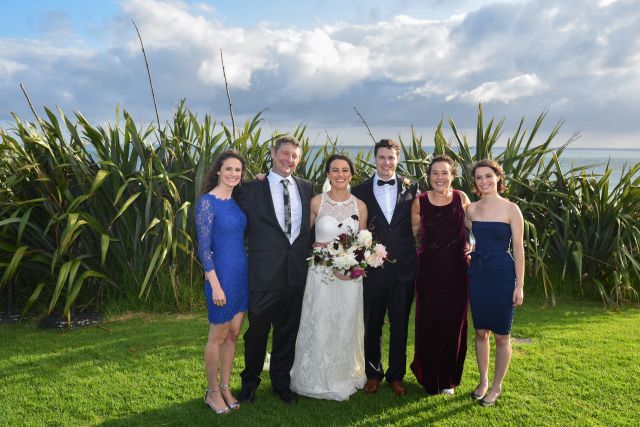
Joel Kranz and Anna Fischer married 7 April 2018 at Castaways Resort.
After 32 years the Harding prize has been awarded to a female young tunneller. “I am also proud to be the first woman to win since 1986, which is actually the year I was born,” said Leah Jacobs, who works for London Bridge Associates. Jacobs won the competition bringing her paper on “Changing the safety Culture” based on her contribution to the Waterview Connection project in New Zealand.
To read more click here
Copyright and photo Tunnels & Tunnelling International Magazine
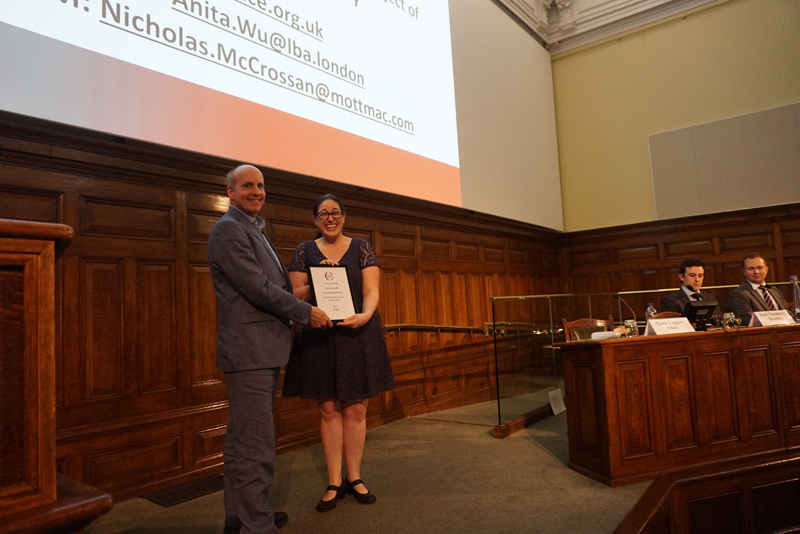
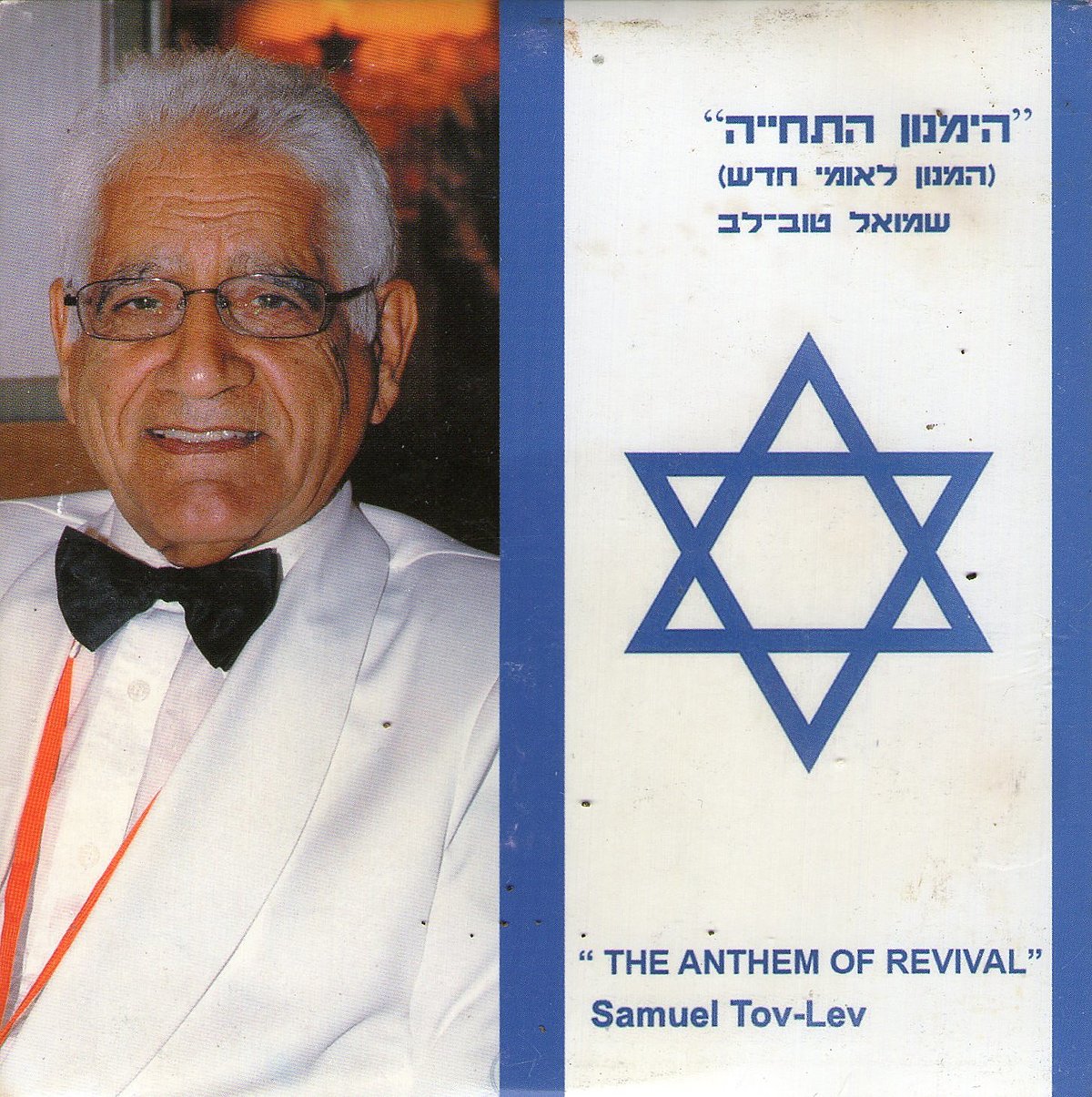
Beth Shalom's first full-time rabbi, Rabbi Tov-Lev served both Auckland and Wellington congregations in the 1970's. His composition (A New National Anthem) is available from the Judaica shop.

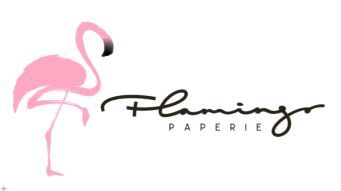
“Flamingo”, is now in New Zealand. Exclusive cards and gift wrap. Beautiful, unique designs by over 40 artists.
Made in the United Kingdom - very ‘eco’ friendly, great quality and value. Cards for everyone and all occasions (sorry, no Jewish themes).
Check out our new 2018 range either by our online flippy book, click here, or contact Lita and Colin on (09) 832 3453 or [email protected]
Look forward to hearing from you.
Header
Hunting the Hare and Kindling the Candle – Havdalah before a Festival
by Chris Milton
This year both Pesach and Shavuot commenced at the conclusion of Shabbat.
Havdalah is performed after nightfall on Saturday evening. “Nightfall” is the point at which it is dark enough to see three medium-sized stars in the sky. Because performing Havdalah involves actions that are forbidden on Shabbat (e.g., lighting and putting out a flame), it is important not to do so until after Shabbat has ended. When a normal weekday follows Shabbat, Havdalah is made up of four prayers/blessings. The order of these blessings corresponds to the acrostic YaVNeH (the city to which the Great Sanhedrin was relocated after the Second temple was destroyed). Yavneh stands for: Yayin (wine), Besamim (spices), Ner (candle/lamps), and Havdalah (blessing for the end of Shabbat). The order is recorded in Shulchan Aruch Orach Chayim 296:1[1].
Since Shabbat is holier than all the other Festivals, we recite the Havdalah when Shabbat leads into a holiday but not the other way around. Furthermore, when a Festival begins on a Saturday night the ritual process is different to an ordinary Havdalah because that night's holiday Kiddush incorporates the Havdalah within itself and does not include the spices. The blessing "distinguishes holiness from the everyday" is also changed to "distinguishes holiness from holiness" signifying that the holiness of the Festival is of a lesser degree than the holiness of the concluded Shabbat.
The acrostic YaKNeHaZ gives the order of the blessings of the Kiddush and the Havdalah when a Festival commences at the conclusion of Shabbat. It sounds somewhat similar to a German expression (jag den Häs – phonetically “yug den hess”) which means "hunt the hare." For this this reason, some medieval Haggadot were illustrated with pictures of a rabbit-hunting scene. The letters stand for Yayin (wine), Kiddush (sanctification), Ner (candle/lamp), Havdalah (blessing for the end of Shabbat), and Zeman (the benediction Shehecḥeyanu). This matter is discussed and debated in the Babylonian Talmud Tractate Pesachim, 102b to 103a[2], there is dissent but the halachah followed is according to Rabba.
Header
The second matter that I shall discuss is the issue of candle lighting when a Festival commences at the conclusion of Shabbat. In Exodus 35:3 the prohibition on kindling fire on Shabbat is given as: “You shall not kindle a fire in any of your dwellings on the day of Shabbat.” However, this Biblical prohibition on "kindling" is in fact not in force on Festivals (other than Yom Kippur) when not on Saturday, provided it serves a purpose (Shulchan Aruch Orach Chayim 514:5[3]). Nonetheless, whilst one may transfer fire from a flame source, there is a rabbinic prohibition on generating a new fire on a Festival (the Babylonian Talmud Beitzah 33a[4] and various other subsequent sources). This produces a problem for us at Beth Shalom because we cannot allow a source of flame to burn on unattended and unobserved for more than twenty-four hours because it poses a fire risk.
There is a difference of opinion about the reason on the prohibition on kindling new fire. The Rambam, in his Mishneh Torah Hilchot Yom Tov 4:1says: “Igniting a fire is prohibited because it can be ignited before Yom Tov.” If one follows his reasoning then it can be concluded that if one was unable to kindle or maintain a flame before the Festival then it may, nonetheless, be permissible to kindle a new flame on a Festival. In fact, although many people are reluctant to follow this reasoning, the Chida (Rabbi Chaim Yosef David Azulai ben Yitzhak Zerachia, born 1724 – died 1806) cites a now lost source that does rule that someone who was unable to kindle a flame before a Festival may kindle a new flame on the Festival. The Chida had sight of certain manuscripts sources then extant but now lost and often recorded what he had seen personally. A Progressive Jewish halachic position can follow this minority opinion of the Chida and kindle the Festival candles with a new flame because, given our circumsatnces, we are unable to maintain a flame through the longer than twenty-four-hour period.
Finally, the special braided Havdalah candle is not used when moving from Shabbat to a Festival because, being a Festival, it may not be extinguished after the Havdalah is completed. Consequently the blessing is recited over the Festival candles instead.
[1] https://www.sefaria.org/Shulch...
[2] https://www.sefaria.org/Pesach...
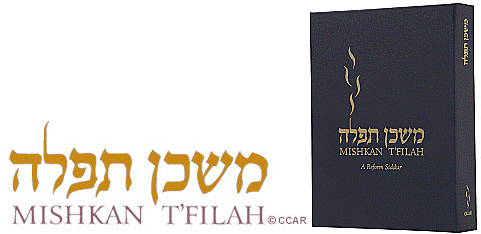
A group of Beth Shalom members has commenced, to think of and pray for individuals in our community, who are in need of healing.
The idea is that this group is not an organised group or minyan. Simply, caring people who, when made aware of the need, help healing with the power of prayer.
And that families in distress might receive comfort from the knowledge that this is taking place.
Caring for the unwell is part of being a community.
For those interested, I can supply articles: “The Jewish Way in Healing”, and some scientific research on the positive power of prayer in healing.
If you wish to be part of this group
Or, if you know of someone who is unwell that would appreciate our prayer
Please contact Leon Goldwater or Christine O’Brien at shul office
Leon: [email protected] 020 403 88054
Christine: [email protected] 524 4139
Beth Shalom's Sunday school is back in session for term 2. We have had to say goodbye to Myra Cohen our Kita Aleph teacher and we have had to do some juggling to make it work. We will still have 3 seperate classes of Hebrew Aleph, Bet and Gimmel but we will be combining Aleph and Bet for Jewish studies.
If any parents are interested in teaching the Kita Aleph class we are looking for volunteers. We have all the curriculum and workbooks in place and you'll just need a couple of hours ahead of time to prepare plus 2 two hours on a Sunday.
Sunday school is energised. We recently had two visiting Rabbis and both had amazing words of praise for our clever students who are doing some deep thinking about ethical issues in Torah and Jewish history. It is always great to get an outsider's opinion on how things are going.
Rabbi Jonathan Keren Black - Kita Gimmel "I cant believe the level these students are studying at."
Rabbi Chava Koster - Bar Mitzva class "I like difficult questions about God and Torah and your class is not afraid to ask them".
Celebrating Shavout Sunday school comes to the Shavout services - Bringing in the first fruits to the singing of Hallel and we delivered them to the senior citizens in our community.
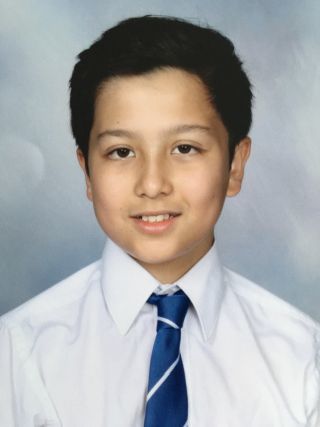
Please join David and Ewa Bigio in celebrating Nicholas Bigio’s Bar Mitzvah on Saturday the 9th of June at 10am. Kiddush will take place thereafter.
Nicholas attended St Kents Boys school from 2015 - 2017 and is currently a Form 3 student at Auckland Grammar Boys School. Prior to St Kents, Nicholas attended Kadimah College and Bayfield Primary School. Nicholas is an avid reader and has represented his schools as well as North Harbour and Auckland Associations in basketball from an early age. He has been selected to represent Auckland Basketball Association in its Premier U15 Boys team in the National Competition this July.
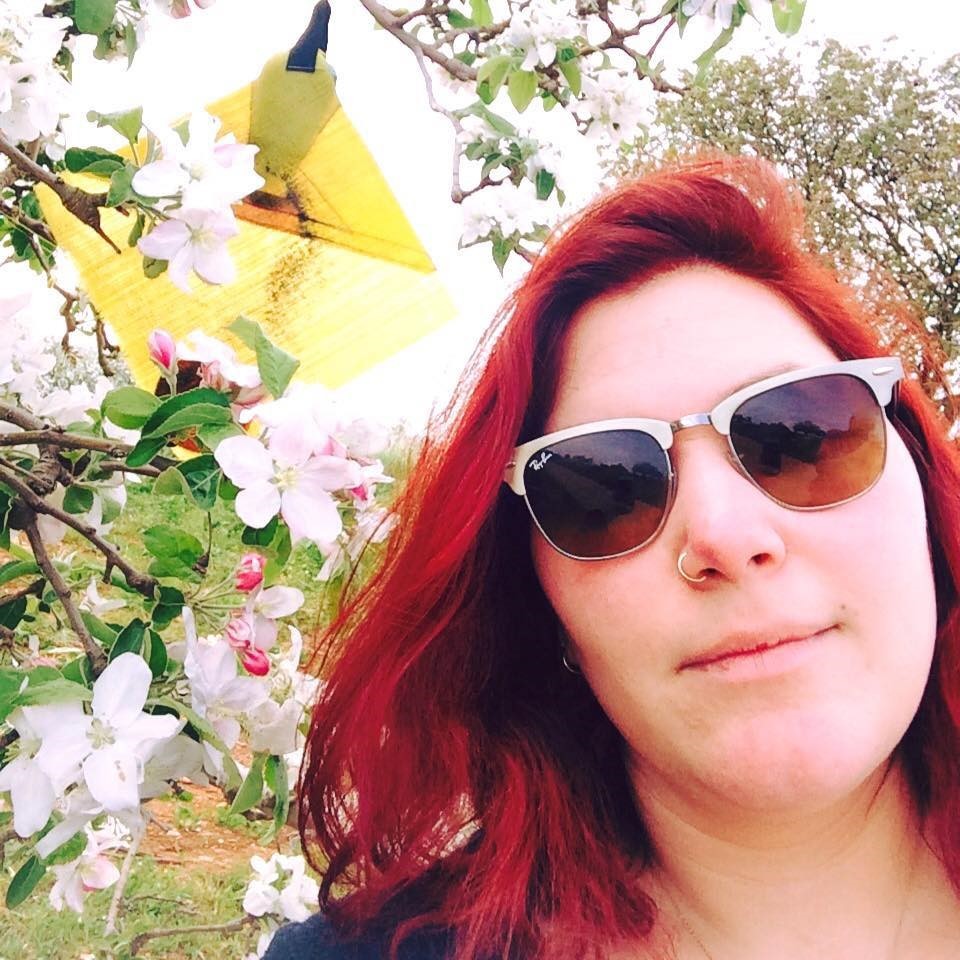
Shalom friends!
My name is Stav Rogel, I am 27 years old. I was born in Jerusalem but most of my life I lived in a kibbutz in the north of Israel named Malkiya. My absolute favorite things are – animals, nature, travel and music – I have been singing my whole life. I studied one year of zoology and one year of music in the university, but decided to put it on hold and become a shlicha. I love Israel and I feel very connected the Jewish people and coming to NZ and working with the Jewish agency is a natural move. I can’t wait to get to know NZ and be a part of your community.
Stav
Learning about Judaism has become very popular this year. We have an introduction to Judaism course which is bursting at the seams with 15 students. It is really an amazing class which is keen to learn Hebrew and about Judaism.
Some of the students have volunteered to intern on some of our shul committees and are keen to work together with our members on such things as the garden, the B&B, education and ritual committees. I hope you welcome them when you come to services and invite them to join projects you want to make happen in our community.
Alana is a new mother of a 6 week old baby, Caitlin is a paramedic and studying for a Masters in bible, Alan is an engineer, David is an electrical engineer, Zarina is in tourism and marketing, Phillip is an actor and organic gardener, Susanne is an accountant, Cass is doing a Masters in Art and Photography, Jen is co-ordinator of a film festival, Trudi is a Librarian, Esther is an OBBGYN, Jeremy is a GP, Ray is a school counsellor, Marie is a teacher and Kerry is a fundraiser and mother.
Learning Hebrew for Adults We are continuing to work on learning Hebrew for adults. It is on Thursdays at 7pm. Please contact the office if you are interested in joining.
We would also like to start an adult Torah Study group once a month. If you are interested, again please contact the office.
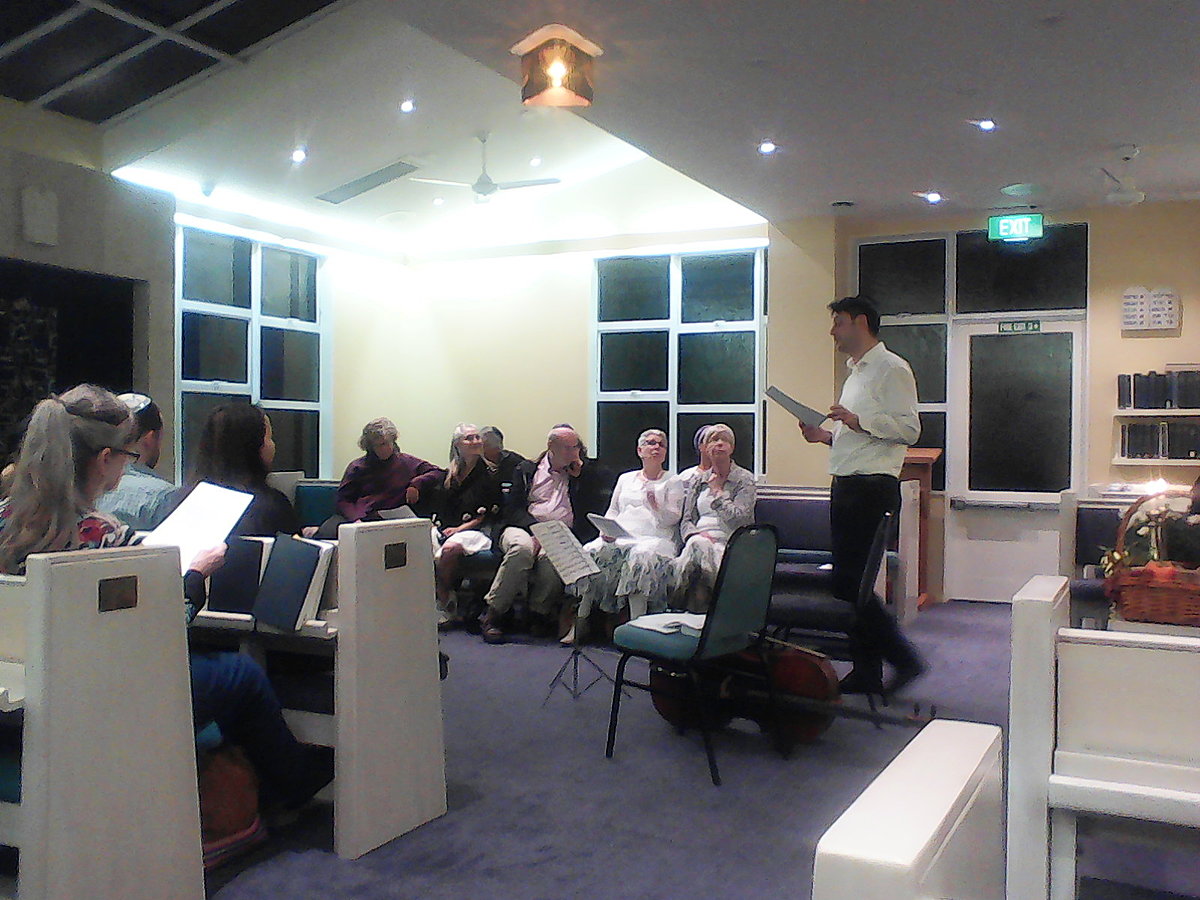
Most Jewish funeral customs are designed at least as much to comfort bereaved families as to honour the deceased.
The funeral officiant will be keeping this thought “top of mind” right through the ceremony. But relatives are not the only living people who will need to be taken into account. There are also likely to be friends and acquaintances present and it’s important that they too feel comforted by the proceedings.
In a community such as ours, situated thousands of kilometres away from major centres of Jewish population, we often face an additional challenge, as it’s quite normal here for a majority of those attending not to be Jewish. Indeed, we sometimes find ourselves with gatherings of literally hundreds of people that nevertheless include only the bare modicum of Jews required to form a minyan.
Our job is then to keep the service authentically Jewish and appropriately focussed around the bereaved family, whilst also making the proceedings as accessible as possible to those from outside our community. In so doing, we need to remember that the funeral might be the first and perhaps only time at which a majority of those present are exposed to things Jewish in any form.
Of necessity, in these circumstances, the officiant becomes something of a public relations representative for both Judaism and Jewishness, a role that’s certainly not grown less important in the shadow of the recent global upsurge of anti-Semitism
Fortunately, our standard service, as provided by the Rabbi’s Manual of the Central Conference of American Rabbis, contains an eloquent and inspiring multi-choice mix of psalms and prayers that combine Jewish tradition and authenticity, with what can best be described as a universalism of the spirit.
My own preference is to commence the service with a short speech pointing out that, although some things may appear new to those unacquainted with Jewish practice, much of the service may nevertheless seem strangely familiar.
I then chant a brief passage in Hebrew, in order, amongst other things, to emphasise that we’re on Jewish spiritual territory. But I then normally proceed in English to the familiar words of Psalm 23. I always find it heart-warming, at this early point in the service, to see non-Jewish friends of the deceased mouthing King David’s ancient and numinous verses along with me, in their familiar translated form.
I wake around 4 AM – daily active moments are bound-up in 24 hour cycles, philosophically reflective: each life-giving day at age 86, is a blessed day.
This religious male remains deeply reflective: continually curious as to the unfolding phenomenon simplistically titled ‘human spiritual awareness’. That state of religious beingness, for me, is dependent on my awareness of personal moods: my ability to remain cognitive and thankful that I was born into observant tribes: Cohens and Solomans; bound together by the significant ritual of lighting Sabbath Candles.
I smile deeply at the often quoted sentiment:
Jews are created in the image of Adashem to observe and honour Sabbath – and so it is that for more than 4000 years commitment to Sabbath sustains a ritualistic history of beingness.
As a young student I remember asking my rabbi
‘Does Abraham really exist’?
The answer, some 50 years after my asking – remains with me, ever present:
‘A Jew does not need to ask this question’.
As to the significance of this reflective statement – each Jew will furnish their own response, their own insightful purpose for living.
My world, my daily beingness does not exist in isolation of my religiosity.
And, as age impacts upon my capacity to think and write I am forever thankful that while I have life I am a blessed being.
Regards to my ever treasured congregation at Beth Shalom, Marcus Cohen
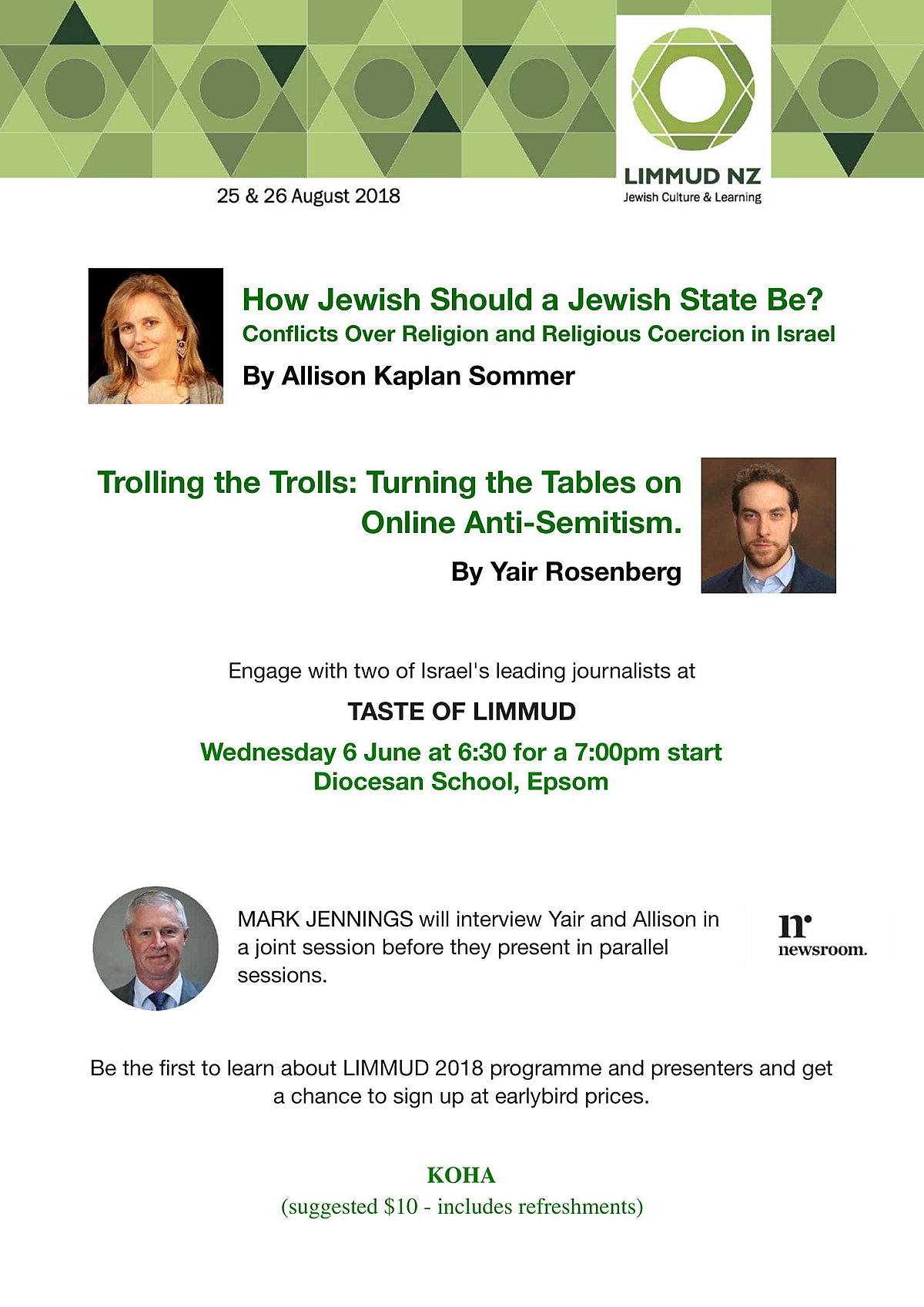
Novotel Melbourne, St Kilda, 15-18 November 2018
New Zealand representative, Paul Blaschke
The conference website is now up and running and registrations are being accepted.
Check out the programme and speakers led by Scholar-in-Residence Rabbi Larry Hoffman. Highlights include:
Early-bird registration runs till August 17th, including great rates for first time New Zealand registrants - contact your Board to find out what support is available.
